Flooring University: IIC Ratings in Commercial Construction
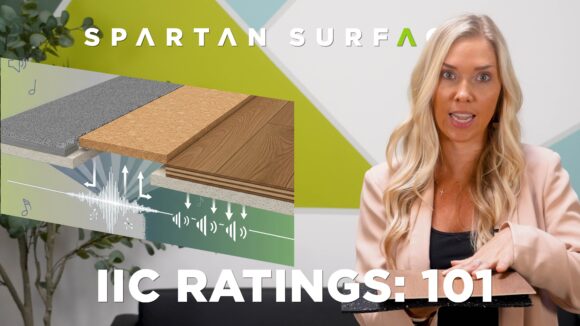
Noise control is one of the most important factors in multifamily construction. Few issues create as much frustration between neighbors as unwanted sound. That’s where IIC ratings come into play. Short for Impact Insulation Class, an IIC rating measures how effectively a flooring system reduces impact noise, the footsteps, furniture movement, or dropped objects that often cause disputes in apartment and condo living.
In this Flooring University session, Spartan’s Hannah Verschoore will break down what IIC ratings are, how they’re tested, and what flooring products and underlayment can help you meet code while creating comfortable living environments.
What is an IIC Rating?
An IIC rating is the standardized way to measure how well a floor and ceiling assembly absorbs impact noise. The higher the number, the better the performance.

Minimum requirement
Building codes typically require at least a 50 IIC.
Comfortable range
Between 50 and 60 IIC is considered the sweet spot for multifamily projects.
Exceptional performance
Anything above 60 IIC delivers superior noise control and tenant satisfaction.
Zero does not exist on the scale, but falling short of the minimum requirement can open the door to costly problems for developers.
Why IIC Ratings Matter in Multifamily Construction
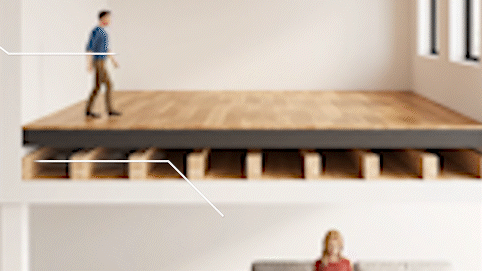
In a multifamily environment, soundproofing isn’t just a nice feature , it’s a necessity. Developers who overlook IIC compliance risk more than unhappy tenants:
- Noise complaints are among the most common sources of tension between neighbors.
- Legal exposure is possible if units fail to meet minimum IIC standards. Condo owners, for example, can hire third-party testers. If the results show the floor assembly underperforms, the developer may be responsible for rehabbing the unit.
- Reputation and sales can suffer when a property becomes known for noisy living conditions.
Meeting or exceeding IIC requirements helps protect investments, ensures code compliance, and fosters a higher quality of life for residents.
How IIC Ratings Are Tested
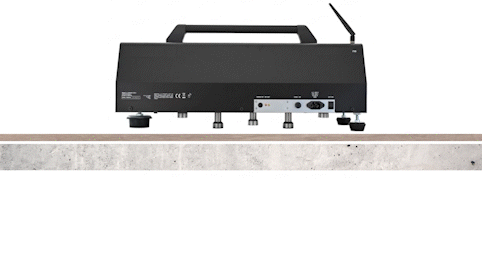
IIC testing takes place in controlled facilities designed to replicate real-world building conditions. The process involves:
Two-level setup
A sample floor and ceiling assembly is built, complete with slab thickness, insulation, ceiling depth, subfloor, underlayment, and floor covering.
Five-hammer tapping machine
This device strikes the surface consistently to simulate impact noises.
Microphone readings
Sensors above and below the floor measure sound frequencies between 100 and 3150 hertz, the range most noticeable to humans.
Delta IIC measurement
To isolate the floor’s contribution, the facility runs one test without flooring installed and another with it. The difference between the two is called the delta IIC.
Variables such as slab thickness, joist type, ceiling construction, and adhesives all influence the final rating. The good news? Flooring professionals have multiple strategies to improve results.
Underlayment That Improves IIC Ratings
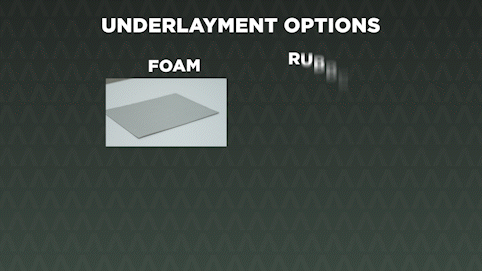
Underlayment plays a critical role in sound control. Common options include:
- Foam underlayment: Cost-effective and easy to install, though they may compress over time.
- Cork underlayment: A natural option that contributes to sustainability goals but can degrade with age.
- Rubber underlayment: Highly durable and made largely from recycled tires. Rubber maintains its resilience, returning to its original form even under heavy furniture.
Rubber underlayment, in particular, is popular for multifamily housing because of its strength, sustainability, and long-term performance. A 2 mm rubber underlayment paired with a 2 mm LVT or a 5 mm rubber underlayment under porcelain tile creates assemblies that balance durability and acoustical performance.
Flooring Products with Built-In Acoustical Pads
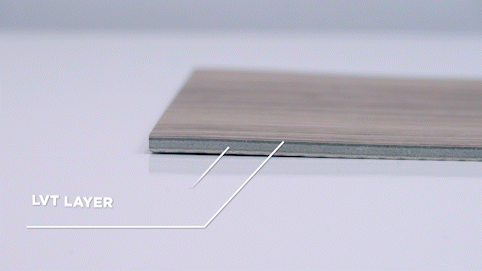
Another option for developers is flooring products with integrated sound control. These “all-in-one” solutions reduce installation steps while delivering reliable IIC performance:
Vinyl with integrated pads
Simplifies installation by eliminating the need for separate underlayment.
Rigid core LVT with attached pads
Floating floors that improve acoustical properties without direct adhesion.
Vinyl with rubber backing
Offers superior sound absorption, especially useful in gyms or high-impact areas.
Carpet with foam padding
Still one of the highest-performing options for IIC, though less popular in recent years due to cleaning challenges.
The benefit of built-in products is convenience: one manufacturer, one warranty, and fewer installation steps. While material costs may be higher, reduced labor and peace of mind often balance the investment.
Comparing Underlayment vs. All-in-One Products
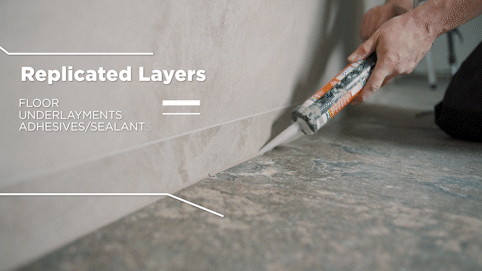
When deciding between separate underlayment and integrated solutions, cost and project goals come into play:
- Underlayment is typically less expensive in material cost, but require more labor and coordination between manufacturers.
- All-in-one flooring costs more upfront but reduces installation complexity and simplifies warranty claims.
Both paths can help projects meet or exceed IIC requirements. The key is to align the product choice with building type, budget, and tenant expectations.
IIC ratings may not be the first thing tenants notice when touring a space, but the way sound travels quickly becomes an impactful factor of livability. By investing in quality underlayment or flooring with integrated sound control, developers can avoid costly retrofits, minimize complaints, and create environments where residents thrive.
Spartan works with builders, architects, and designers every day to find flooring solutions that balance performance, aesthetics, and acoustics. Whether you’re exploring rubber underlayment, acoustical LVT, or other strategies, we’re here to help you meet IIC requirements with confidence. Contact us today to discuss your project and discover the right solution for your space.
ABOUT SPARTAN
Spartan Surfaces is a specialty flooring supplier headquartered in Bel Air, MD. Employing over 250 team members, Spartan prides itself on taking a human-centered approach to business. We put people at the forefront of everything we do – our clients, our suppliers, our communities, our team, and our families. Spartan holds warehousing and offices in Maryland, Minnesota, and Upstate New York with showrooms in D.C., New York City, and Chicago. Its geography spans the contiguous United States with continued expansion on the horizon. We are great people dedicated to great products, great families, great friendships, and great happiness. Whatever you’re working on, we’ve got you covered!